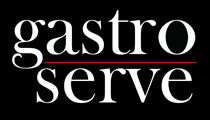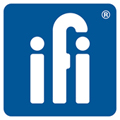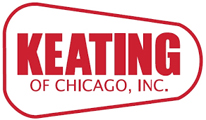Shular Institute redefines modern culinary education with the help of Henny Penny
OIL’S SWEET SPOT: How to Get There and Maintain It
August 27, 2021Mycoprotein: Getting the “chicken” without the bird
September 22, 2021
The needs of the foodservice industry are changing. The appeal of traditional culinary school is waning. One chef is trying to bridge the gap.
And Henny Penny is helping.
Culinary heyday
Culinary education saw its heyday in the late 1990s and early 2000s. The number of career cooking schools in the U.S. grew by nearly 150 in the decade preceding 2001 and enrollment at existing schools and programs skyrocketed, according to a Chicago Tribune article.
In those heady days of the culinary craze, students were drawn to what they saw as a straight-line career path: graduate, start in a restaurant as a line chef, work up to sous chef and then executive chef. If you’re talented and lucky, maybe even vaulting yourself into celebrity chef status.
But times are changing. A news story from 2017 noted dramatic declines in culinary school enrollment and the shuttering of many programs across the country.
“The new generation of students wants to create their own path,” said Certified Master Chef Daryl Shular, who has set out to redefine what a culinary education is and what it can do.
“The curriculum when I was teaching in the early 2000s doesn’t correlate to the current generation’s desires. They have a more entrepreneurial mindset.”
A new idea
To address the changing landscape, Shular founded the eponymous Shular Institute in an effort to reform what culinary education would be.
“There’s a huge divide between what culinary education traditionally is and what the industry actually needs,” he said.
At the Shular Institute, students learn not only the culinary arts, but also the business curriculum they’ll likely need to one day run a restaurant, lead the menu development team of a chain, or follow one of any number of paths into hospitality that are open to them today.
“There’s not just one path anymore where you get educated and go straight into a kitchen,” Shular said. “Teaching students the basics of cooking plus how to manage a business operation will give them the tools they need to succeed in the industry.”
At the Shular Institute, students put their classroom learning into action right away at the in-house full-service restaurant, Farmed Kitchen & Bar, which is open the public and is supported and staffed in part by students.
“With this real-world environment, you never know what’s coming through those doors, you never know what that guest is going to require,” Shular said. “The days of students standing around a table with everyone slicing onions and an instructor watching them are over. The meaningful evaluation comes from someone who doesn’t know you.”
Besides how to adapt on their feet and meet the needs of guests, Shular Institute students will also get a first-hand education on things like negotiating pricing with vendors or communicating with government and community organizations to secure licenses or grants.
Traditional schools don’t teach those skills, Shular said. “Those things are kept secret. I’m trying to lift the covers off all that secrecy.”
Partnering with the industry
To bring his unique culinary school to life, Shular enlisted insight and support from foodservice industry leaders like Henny Penny.
“What Shular stands for is what we stand for,” said Gregg Brickman, Henny Penny’s corporate executive chef. “It’s about education. It’s about developing the next generation of our industry’s leaders.”
Some of what appealed to Brickman, who spearheaded Henny Penny’s involvement in the project, was how the school prepares students for more than just a fine-dining kitchen.
“They’re seeing there’s more to the restaurant world than a four-hour sauce. There’s speed scratch, how to make food fast and still good,” he said. “Students don’t usually go to culinary school to work at at a fast food restaurant, but they may go to culinary school and be a part of the development team at that fast food chain. And we and Chef Shular want them to come out of school and be ready to do that.”
Henny Penny donated more than $300,000 worth of equipment to the Shular Institute, equipment that allows the school to offer a real-world cooking experience. The equipment, which helped establish multiple cooking lines and a culinary test lab for students, included two combi-ovens, one combi smoker, fryers, holding cabinets, a rotisserie, a smoker, a Wood Stone pizza oven and more.
“Students being able to use and train on the kind of new equipment that’s becoming more popular throughout the industry gives them a leg up,” Brickman said.
To learn more about the Shular Institute, visit http://shularinstitute.com/.
The post Shular Institute redefines modern culinary education with the help of Henny Penny appeared first on Henny Penny.
Source: https://www.hennypenny.com/the-latest/blog/
Our Brands









